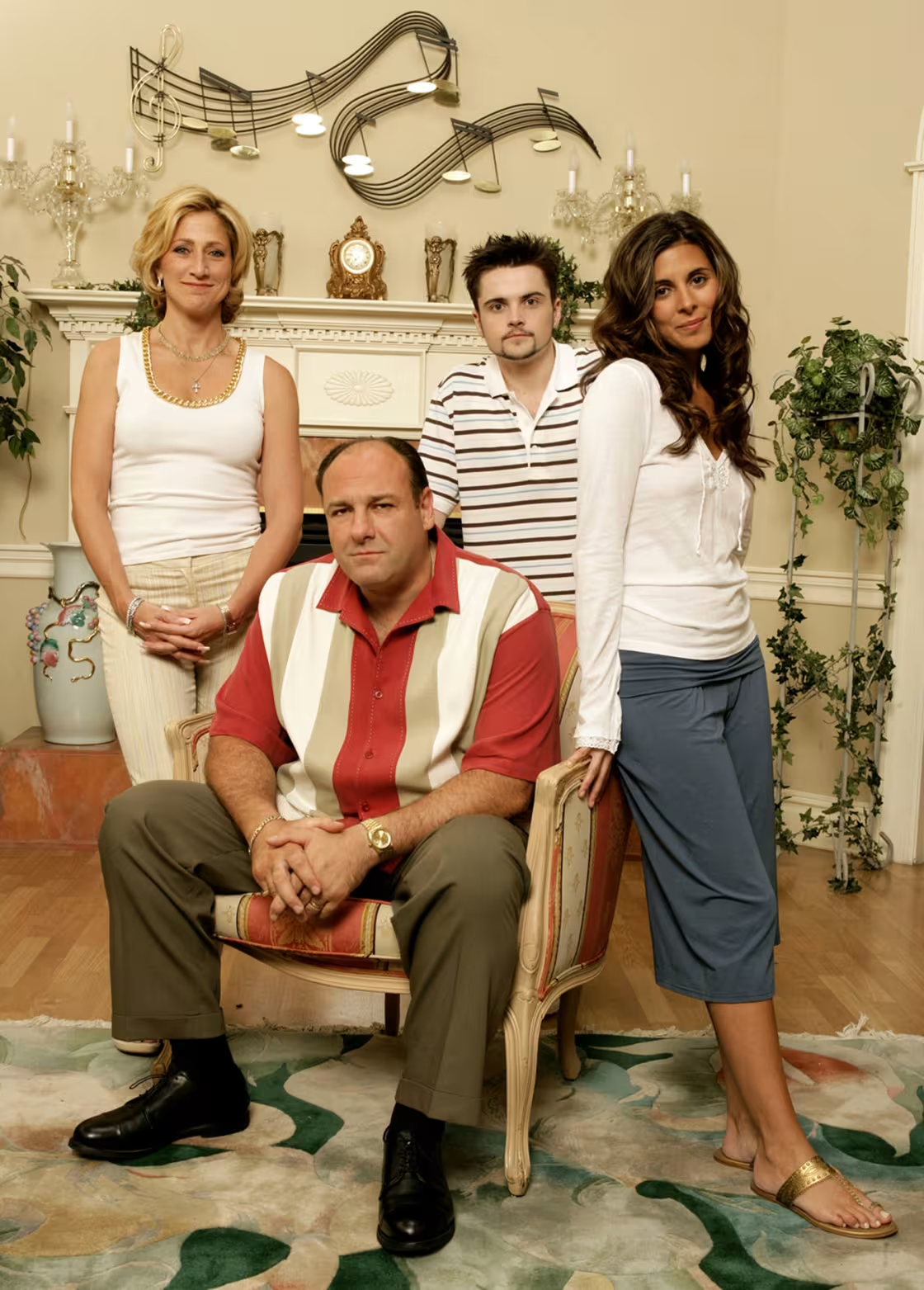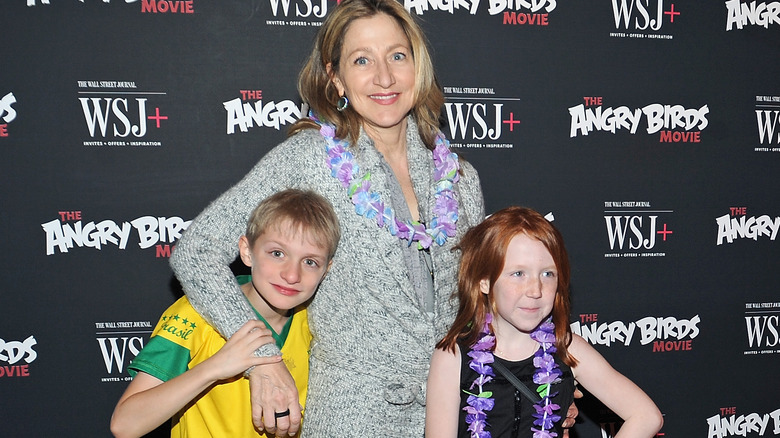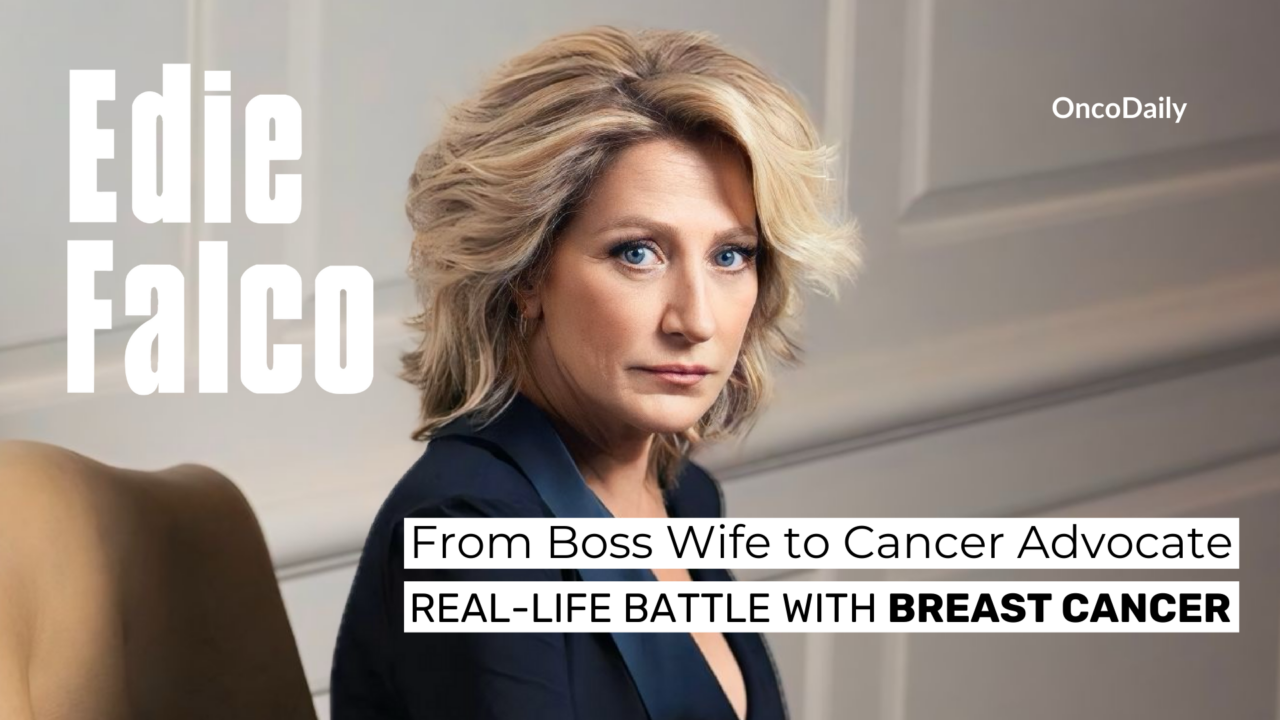Edie Falco is a renowned American actress best known for her role as Carmela Soprano in The Sopranos, which earned her multiple Emmy Awards. During the show’s filming, she was diagnosed with breast cancer in 2003. Her experience with treatment while balancing her career significantly shaped her life and advocacy for cancer awareness. Falco has since become a passionate advocate, emphasizing the importance of regular screenings and early detection, which can dramatically improve survival rates—evident in studies showing a 99% five-year survival rate for localized breast cancer. Through her openness about her journey, Falco inspires others and fosters a supportive community around cancer awareness.
How Did Edie Falco Get Diagnosed with Breast Cancer?
Edie Falco did not initially notice significant symptoms that prompted her to seek medical advice; instead, her proactive approach to health through routine screenings led to her breast cancer diagnosis in 2003. However, common symptoms that often lead individuals to consult a doctor include:
Symptoms
- Lumps or Masses: The most common symptom, often described as a hard, immovable lump.
- Changes in Breast Shape or Size: Unexplained alterations in the appearance of the breast.
- Nipple Discharge: Fluid leaking from the nipple, especially if it is blood-stained or occurs without squeezing.
- Skin Changes: Dimpling, puckering, or redness in the breast skin.
What Were Edie Falco’s Initial Reactions to Her Diagnosis?
Upon receiving her breast cancer diagnosis in 2003, Edie Falco experienced shock and fear, grappling with the emotional weight of the news. To cope, she leaned on family and friends for support, focusing on understanding her diagnosis and treatment options to regain control. Falco maintained a positive outlook, believing it would aid her recovery. She also chose to keep her diagnosis private during the filming of The Sopranos, wanting to avoid disrupting production and stay focused on her work. This decision reflects her resilience and commitment to both her health and her career.
What was the Prognosis?
- Screening Effectiveness: Regular mammograms can reduce breast cancer mortality by 20-40% in women aged 40 and older (American Cancer Society).
- Survival Rates: The five-year survival rate for localized breast cancer is about 99% (American Cancer Society).
- Incidence Rates: 1 in 8 women will be diagnosed with invasive breast cancer during their lifetime (National Cancer Institute).
Falco’s experience highlights the importance of early detection and routine screenings in effectively managing breast cancer.
What Treatments Did Edie Falco Undergo?
Edie Falco’s treatment plan for breast cancer included surgery, chemotherapy, and radiation therapy. Initially, she underwent a lumpectomy to remove the tumor, followed by chemotherapy to target any remaining cancer cells. She also received radiation therapy to reduce the risk of recurrence. Physically, these treatments resulted in fatigue, hair loss, and other side effects that challenged her daily life.
Surgery
Edie Falco had a lumpectomy for her breast cancer, a surgery aimed at removing the tumor along with a margin of surrounding healthy tissue. This procedure is often preferred for its potential to preserve breast appearance. The recovery involved managing pain and ensuring proper healing, which required time away from work commitments.
Chemotherapy
- Sessions: Edie Falco underwent a series of chemotherapy cycles designed to target and eliminate any remaining cancer cells post-surgery. The specific regimen was not disclosed, and is usually composited of multiple chemotherapy (can include doxorubicin, paclitaxel, carboplatin, cyclophosphamide, methotrexate) and in some cases homronal(tamoxifen, letrozole, CDK4 inhibotors) or targetted agents, such as Herceptin, Pertuzumab. Early breast cancer requires less aggressive approach, but is based on spesific histology and tumor extent.
- Side Effects:
- Fatigue: A common side effect, chemotherapy left her feeling drained, impacting her energy levels.
- Hair Loss: She experienced significant hair loss, which was emotionally challenging, especially for an actress in the public eye.
- Nausea and Vomiting: These symptoms affected her appetite and overall well-being, requiring careful management through medication and dietary adjustments.
- Emotional Distress: The physical toll of treatment brought about feelings of anxiety and vulnerability, influencing her mental health.
How Did Edie Falco Overcome Breast Cancer?
Edie Falco faced a challenging journey managing her breast cancer treatment while filming The Sopranos. Diagnosed in 2003, she balanced the physical and emotional demands of chemotherapy with her role as Carmela Soprano.
The side effects of chemotherapy, including fatigue and nausea, significantly impacted her energy levels and performance on set. Additionally, the emotional stress of dealing with her diagnosis in the public eye heightened her anxiety about her health and career.
To accommodate her treatment, adjustments were made to her filming schedule, allowing her to attend chemotherapy sessions while ensuring she had sufficient time to rest and recover between shoots. The cast and crew rallied around Falco, providing a supportive environment. Their empathy and understanding were crucial, allowing her to take breaks when needed and ensuring she felt comfortable on set.
Support from Family and Friends
Despite the challenges, Edie Falco’s resilience and the support of her Sopranos family highlighted the importance of community during difficult times, enabling her to navigate her cancer journey while continuing to shine on screen.
Close Friends
Falco’s friends, including fellow actors and industry colleagues, were a vital source of comfort. They frequently checked in on her, offering words of encouragement and companionship. One particularly touching anecdote involves her friend and co-star, Lorraine Bracco, who went out of her way to provide support, reminding Falco that she was not alone in her struggle. Bracco’s visits and heartfelt conversations helped lift Falco’s spirits during some of her darkest moments.Soprano family from TV series SOPRANOS 1999-2007

Family Support
Falco’s family also played an essential role in her emotional well-being. Her parents and siblings offered unwavering love and reassurance, creating a safe space for her to express her fears and frustrations. She often turned to them for comfort, sharing her feelings about her diagnosis and treatment. The close-knit bond they maintained allowed her to navigate the complexities of her journey with a sense of security.

Mental and Emotional Challenges
To cope, Falco practiced mindfulness, helping her stay grounded and focused on the present. She leaned on a strong support system of friends and family, whose encouragement bolstered her confidence and shifted her perspective toward positivity. Continuing to work gave her a sense of purpose and allowed her to escape, even briefly, from her cancer journey.
Personal Anecdotes
Falco has shared stories of how her family organized small gatherings to keep her spirits high, infusing humor and joy into her recovery. These moments of laughter and connection helped her momentarily escape the stresses of treatment. Additionally, her mother’s nurturing presence and willingness to listen provided a profound sense of comfort, reminding Falco of the importance of family during tough times.
How Did Advocacy and Public Awareness Help?
Edie Falco used her public platform to advocate for breast cancer awareness following her diagnosis and treatment. She openly shared her journey in interviews, aiming to reduce stigma and promote conversations about the disease. A key focus of her advocacy is encouraging women to undergo regular screenings, emphasizing that early detection significantly improves treatment outcomes. By participating in campaigns and events, Falco educates the public and inspires women to prioritize their health, fostering a supportive community around breast cancer awareness.
Public Speaking and Advocacy
Edie Falco has engaged in numerous public speaking events and advocacy efforts to promote breast cancer awareness. Here are some notable examples:
Public Speaking Engagements
- Interviews and Panels: Falco has participated in various interviews, including those on daytime talk shows and health-focused panels, where she discusses her cancer journey and the importance of early detection.
- Breast Cancer Awareness Month: Each October, Falco has been involved in events to raise awareness during Breast Cancer Awareness Month, sharing her story to inspire others to get screened.
Collaborations with Health Organizations
- Susan G. Komen Foundation: Falco has partnered with the Susan G. Komen Foundation, participating in initiatives aimed at raising awareness about breast cancer and encouraging women to get regular screenings. Through campaigns and events, she has helped highlight the importance of early detection.
- American Cancer Society: Falco has engaged with the American Cancer Society, supporting their efforts to educate the public on breast cancer risks and the necessity of annual mammograms. Her involvement includes public speaking engagements and participating in fundraising events.
- Local Health Initiatives: Falco has worked with various local health organizations to promote accessible screening options, particularly in underserved communities. These collaborations focus on providing resources and information to help women understand their screening options and navigate the healthcare system.
What Is Edie Falco’s Life Like After Cancer?
Health Management
Falco continues to prioritize her health through regular check-ups and screenings. She emphasizes the importance of a balanced lifestyle, incorporating exercise and mindful eating into her routine. This proactive approach not only helps her maintain physical health but also reinforces her commitment to wellness.
Current Projects
Professionally, Falco remains active in the entertainment industry, recently starring in series such as The Many Saints of Newark and the critically acclaimed show Tommy. These projects reflect her ongoing dedication to her craft, showcasing her resilience and talent.
Shaped Outlook on Life
Cancer has profoundly influenced Falco’s outlook on life. She often speaks about the importance of living in the moment and cherishing relationships. Her experience has instilled a deeper appreciation for health, prompting her to advocate for others facing similar challenges.
Ongoing Health Challenges
To manage these challenges, Falco employs several strategies:
- Regular Check-ups: She stays committed to regular medical appointments for monitoring her health, ensuring early detection of any issues.
- Physical Activity: Engaging in regular exercise helps combat fatigue and improves overall well-being. She emphasizes activities that she enjoys to stay motivated.
- Mindfulness and Therapy: Falco practices mindfulness and may seek therapy or support groups to address emotional challenges and maintain mental health.
- Healthy Lifestyle Choices: She prioritizes a balanced diet rich in nutrients to support her immune system and overall health.
By implementing these strategies, Edie Falco continues to prioritize her health and well-being, ensuring that she remains resilient in the face of any ongoing challenges stemming from her cancer treatment.
Watch more about Beyond Cancer Diagnosis by European School of Oncology CEO Dr Alberto Costa
What Causes Breast Cancer?
Genetic Factors
Genetic mutations, particularly in the BRCA1 and BRCA2 genes, significantly elevate breast cancer risk. Women with a BRCA1 mutation have a 55-65% chance of developing breast cancer by age 70, while those with a BRCA2 mutation have a 45% risk (National Cancer Institute, 2021). Family history also plays a crucial role; having a first-degree relative with breast cancer can double a woman’s risk (American Cancer Society, 2022).
Hormonal Factors
Hormones, especially estrogen, are key in breast cancer development. Prolonged exposure to estrogen can stimulate breast cell growth. For example, starting menstruation before age 12 or entering menopause after age 55 can increase risk (World Health Organization, 2019). Studies show that hormone replacement therapy (HRT) can raise the risk of breast cancer by 26% (JAMA Oncology, 2019).
Lifestyle Choices
- Diet: Diets high in saturated fats and low in fruits and vegetables increase breast cancer risk. Obesity, particularly post-menopause, is also linked to higher risk (American Cancer Society, 2022).
- Alcohol Consumption: Regular alcohol intake raises risk; women who drink more than one alcoholic beverage daily have a 20-25% higher risk of breast cancer (National Cancer Institute, 2021).
- Physical Activity: Lack of exercise contributes to obesity and hormonal imbalances, increasing risk. Regular physical activity is protective.
Environmental Factors
- Pollution: Exposure to environmental pollutants, such as pesticides, has been associated with increased breast cancer risk (Environmental Health Perspectives, 2019).
- Radiation Exposure: Previous radiation to the chest area, especially in youth, is a known risk factor (World Health Organization, 2019).
How Can Breast Cancer Be Prevented?
Regular mammograms and other screening methods are vital for the early detection of breast cancer, significantly improving treatment outcomes and survival rates.In addition to regular screenings, specific lifestyle changes can significantly lower the risk of developing breast cancer.
Regular Screenings and Early Detection
- Mammograms: Recommended annually for women starting at age 40, mammograms can detect tumors that are too small to feel, often up to two years before they can be physically detected.
- Clinical Breast Exams: These exams by healthcare professionals can complement mammograms, helping to identify any changes that may require further investigation.
Statistics on Early Detection
- According to the American Cancer Society, when breast cancer is detected at an early stage (localized), the five-year survival rate is 99%. In contrast, if diagnosed at a later stage (distant), the survival rate drops to 29%.
- Studies have shown that regular mammography screening can reduce breast cancer mortality by approximately 15-30% among women aged 40-74.
By prioritizing regular screenings, women can take proactive steps in catching breast cancer early, leading to more effective treatments and better outcomes.
Lifestyle Changes
- Healthy Diet: A diet rich in fruits, vegetables, whole grains, and lean proteins is crucial. Research shows that women who consume a diet high in fruits and vegetables have a 20% lower risk of breast cancer (American Institute for Cancer Research, 2018).
- Regular Exercise: Aim for at least 150 minutes of moderate aerobic activity each week. Regular exercise can lower the risk of breast cancer by approximately 25% (National Cancer Institute, 2020).
- Limit Alcohol Consumption: Keeping alcohol intake to no more than one drink per day can reduce breast cancer risk. Studies indicate that women who consume two to three alcoholic beverages per day have a 20-30% higher risk (American Cancer Society, 2021).
- Maintain a Healthy Weight: Obesity is associated with a 30-60% increased risk of breast cancer in postmenopausal women (World Health Organization, 2020). Maintaining a healthy weight through diet and exercise is vital.
- Avoid Tobacco: Quitting smoking lowers the risk of various cancers, including breast cancer. Women who smoke are 25% more likely to develop breast cancer compared to non-smokers (Cancer Research UK, 2019).
FAQs
What type of cancer did Edie Falco have?
Edie Falco was diagnosed with breast cancer, a common type of cancer affecting women, which can be influenced by various genetic and environmental factors.
When was Edie Falco diagnosed with cancer?
She was diagnosed in 2003, around the time when she was gaining immense popularity for her role as Carmela Soprano in HBO’s “The Sopranos.”
How did Edie Falco handle her cancer diagnosis while filming?
Falco chose to keep her diagnosis private while filming “The Sopranos,” allowing her to focus on her work. She initially did not want her illness to affect her performance or the show’s production.
What treatment did Edie Falco undergo for her cancer?
She underwent a treatment plan that included surgery to remove the tumor, followed by chemotherapy and radiation therapy. These treatments were physically and emotionally taxing but were crucial for her recovery.
What impact did cancer have on Edie Falco’s career?
While she continued to work throughout her treatment, the side effects of chemotherapy affected her energy levels and necessitated adjustments to her filming schedule. Despite these challenges, she remained committed to her roles.
How has Edie Falco advocated for cancer awareness?
Falco has been vocal about her experience with breast cancer in interviews and public appearances, emphasizing the importance of early detection through regular screenings. Her openness aims to encourage others to prioritize their health.
Did Edie Falco face any long-term effects from her treatment?
Yes, Falco has discussed experiencing ongoing health challenges, including fatigue and changes in her overall well-being, as a result of her cancer treatment. These effects have influenced her approach to health and self-care.
What is Edie Falco’s outlook on life after cancer?
After her battle with cancer, Falco has maintained a positive outlook, highlighting the importance of resilience and gratitude. She often speaks about the renewed appreciation for life and the value of health.
Has Edie Falco participated in any cancer-related charities?
Yes, she has collaborated with various organizations, including breast cancer awareness campaigns, to promote research and support for patients. Her involvement helps raise awareness and funds for important initiatives.
What are some of Edie Falco’s notable roles besides “The Sopranos”?
Besides her iconic role in “The Sopranos,” Falco is well-known for her lead role in “Nurse Jackie,” where she portrayed a complex nurse battling addiction. She has also appeared in films like “The Quiet” and has extensive theater experience, showcasing her versatility as an actress.
Written by Aharon Tsaturyan MD


